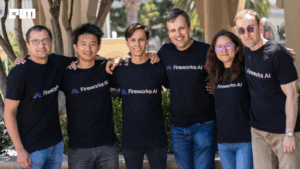In a legal industry still dominated by legacy research tools and time-intensive workflows, McKinney-based Callidus Legal AI says that AI can reduce overhead and reshape how litigation gets done. The company, founded in 2023 by former M&A and restructuring attorney Justin McCallon, just raised $10 million in a funding round led by Cervin Ventures, with participation from AI Fund, Myriad Venture Partners, and law firm Foley & Lardner LLP. The round brings Callidus’ total funding to $13 million.
Callidus’ core offering is an AI-native litigation platform built around a proprietary case law database containing over 10 million U.S. legal cases. Unlike conventional systems that rely on keyword search or generic chatbot functionality, Callidus uses agentic AI models to synthesize precedents, structure arguments, and draft litigation documents with granular detail and legal context. The platform allows lawyers to generate outlines, research memos, and court-ready briefs while staying fully in control of the process.
McCallon, who previously co-led legal transformation efforts at AT&T and helped launch a Gen AI product at DIRECTV, said the idea for Callidus emerged from his frustration with the slow pace of legal work and the limitations of existing tools. “AI has advanced to the point where substantially automating legal work is no longer a question of possibility; it’s a series of tough but solvable engineering challenges,” he said. “We’re building the most advanced and interactive AI platform for litigators.”
Rebuilding Legal Research from the Ground Up
The foundation of Callidus’ product is its in-house legal database, which the company says it built from scratch. The database includes custom metadata, AI-generated case summaries, and issue-specific tagging, enabling its AI models to retrieve and synthesize relevant legal material more accurately than traditional tools. This is particularly important in litigation, where the stakes are high and courts demand precise citations and reasoning.
Callidus positions itself as a “litigation engine,” not a chatbot. The system is designed to produce exhaustive legal research and structured documents with verifiable citations. According to McCallon, tasks that might take a junior associate a week, such as analyzing precedents or drafting an outline, can now be completed up to 85% in ten minutes, allowing attorneys to focus on high-level strategy.
In an industry where hallucinated case law has already sparked judicial rebuke, Callidus emphasizes its anti-hallucination architecture and legal-specific reasoning. Its outputs integrate directly with Microsoft Word, streamlining final review and submission workflows. Investors cite this emphasis on reliability and lawyer-centric design as a key differentiator.
“Callidus turns a week’s worth of research into ten minutes of structured insight, all while keeping the attorney in the loop,” said Taylor Oliver, partner at Cervin Ventures. “That kind of precision, paired with deep respect for how law is actually practiced, is rare in legal tech.”
Legal Tech is Growing Rapidly
The legal tech market is growing. In the past month, Harvey announced a partnership with LexisNexis, and Clio acquired vLex in a $1 billion deal. These developments underscore the growing demand for legal automation tools, but also the challenges new entrants face in competing with incumbents who control key legal data.
Rather than licensing from legacy providers, Callidus opted to build its database independently, a move that required significant upfront investment but offers more flexibility in applying retrieval-augmented generation (RAG) and metadata-based search. McCallon noted that while Callidus is open to future partnerships, “we did build our full key database ourselves bottom-up to be ideal in the RAG world.”
With more than 1,000 customers and recurring revenue tripling in the first half of 2025, Callidus plans to use its latest funding to double the speed of product development, launch dedicated sales and marketing teams, and expand its engineering and legal research staff. The company expects to triple its team across hubs in Texas and California.
Investors see broader potential in Callidus’ architecture, especially as firms look to streamline costs amid economic pressure. “What excites us about Callidus is their technical depth: custom legal reasoning models, intelligent document understanding, and end-to-end automation that mirrors how great lawyers work,” said Andrew Ng, managing partner of AI Fund.
Callidus’ roadmap for the rest of 2025 includes new tools aimed at supporting litigators across the full case lifecycle, from research to post-trial analysis.











